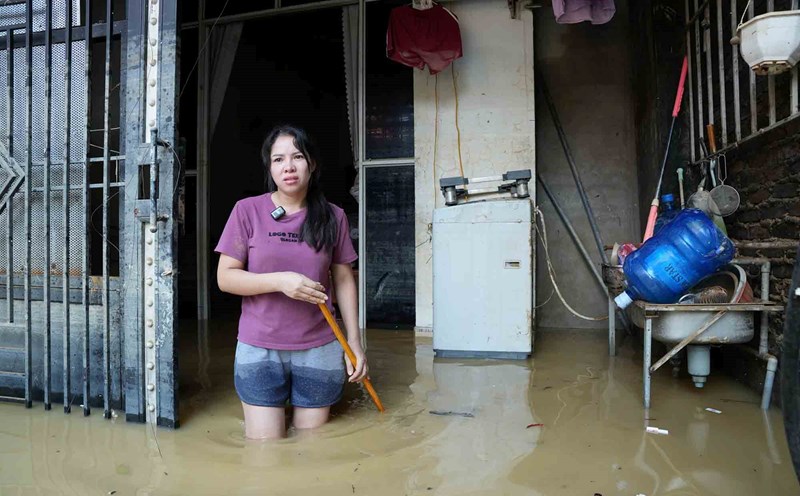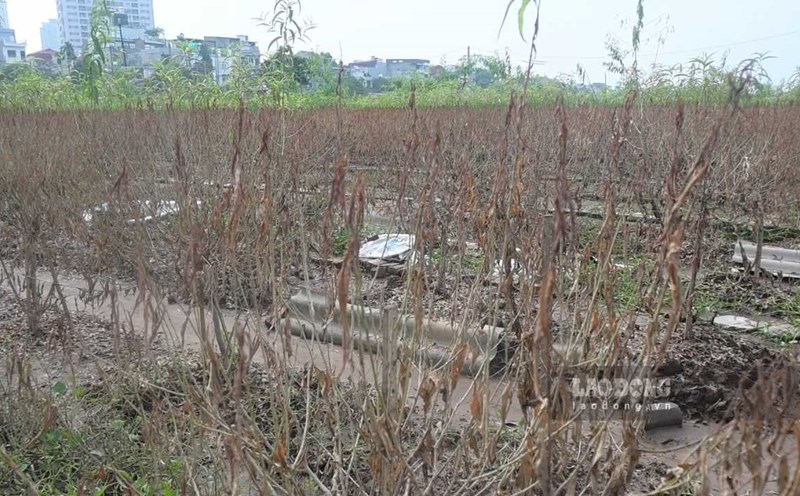On October 13, the National Assembly Standing Committee gave its opinion on the draft Law amending and supplementing a number of articles of the Law on Receiving Citizens, the Law on Complaints, and the Law on Public Prosecution.
The amended Law on Citizen Reception stipulates that the Chairman of the People's Committee at the commune level will regularly meet citizens at the citizen reception location at least 2 days in 1 month (currently stipulates that citizen reception is at least 1 day in 1 week).
Commenting on this issue, Chairman of the Delegation Affairs Committee Nguyen Thanh Hai suggested that the law should clearly state that citizens are not authorized.
According to Ms. Nguyen Thanh Hai, the regulation stipulates that whoever receives citizens must receive them, and that person has the authority to handle them to receive them.
"The Chairman of the Provincial People's Committee receives citizens once a month, then he must receive and listen to opinions and direct agencies to resolve them. The responsibility of the leader is very high and the authority to handle the matter of the leader is very important. We need to be very determined" - the Chairman of the Delegation Affairs Committee emphasized.
Ms. Nguyen Thanh Hai said that she has previously supervised many provinces and found that this authorization has often affected the quality of citizen reception. People had to travel many times because they could not meet the leader, and when they met the leader, it only took them 15-20 minutes to get a solution.
"Therefore, we must legalize citizen reception and require absolutely no authorization" - this person added.
Regarding decentralization and authorization in handling complaints, denunciations, and receiving citizens, Vice Chairwoman of the National Assembly Nguyen Thi Thanh said that currently, the laws have specifically stipulated the competent entities for decentralization and authorization, except in cases where decentralization and authorization are not allowed.
Vice Chairwoman of the National Assembly Nguyen Thi Thanh said that handling complaints and denunciations and receiving citizens is an area that is clearly identified by the law by the competent authority.
On the other hand, resolve complaints and denunciations directly related to human rights and civil rights.
In fact, in the recent past, the results of handling complaints and denunciations as well as limited problems have led to prolonged petitions, cases and the number of cases resolved not being as expected.
"Consider whether there is authorization in the field of citizen reception or not to effectively resolve complaints, in accordance with regulations, ensuring the effectiveness of handling complaints and denunciations" - Vice Chairwoman of the National Assembly Nguyen Thi Thanh suggested.
Meanwhile, Vice Chairwoman of the Hanoi People's Council Pham Thi Thanh Mai found that the person responsible for receiving citizens under the People's Committee is truly authorized a lot.
Ms. Pham Thi Thanh Mai expressed her personal opinion that the Chairman can authorize. However, it is necessary to stipulate how many sessions people must be directly consulted, in addition, they can be authorized or authorized according to specific cases.
Explaining later, Deputy Inspector General of the Government Le Tien Dat affirmed that the spirit of the draft law is not authorized to receive citizens.
According to Mr. Dat, the head must meet citizens periodically. The same goes for current law.
According to Mr. Dat, the draft law adds provisions on cases where the Prime Minister authorizes the Inspector General to handle and resolve complaints.
"The draft law only has one content about authorization, but authorization in receiving citizens is not there" - Deputy Inspector General of the Government Le Tien Dat affirmed.
Concluding, Vice Chairman of the National Assembly Tran Quang Phuong stated that when receiving citizens, the Chairman of the People's Committee at the provincial and commune levels who receives citizens 1 or 2 days a month is not authorized.
However, with the resolution of specific cases, the leader can authorize.











